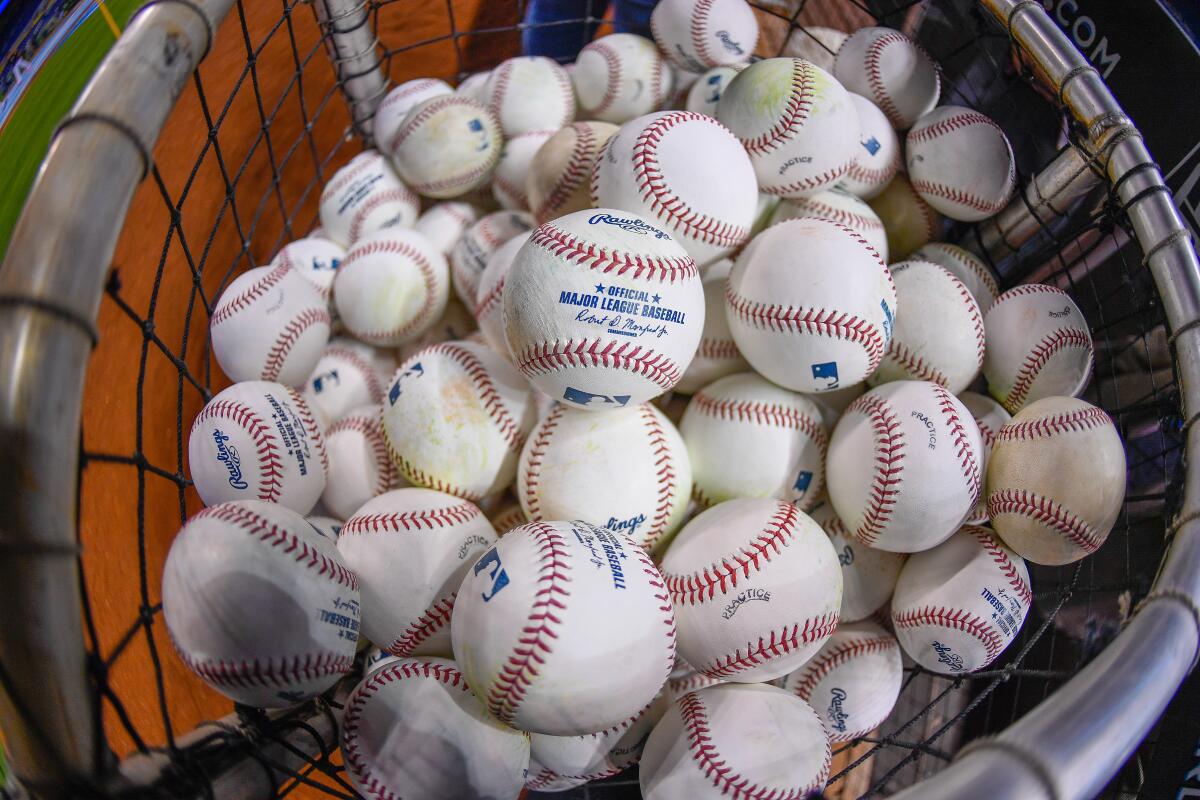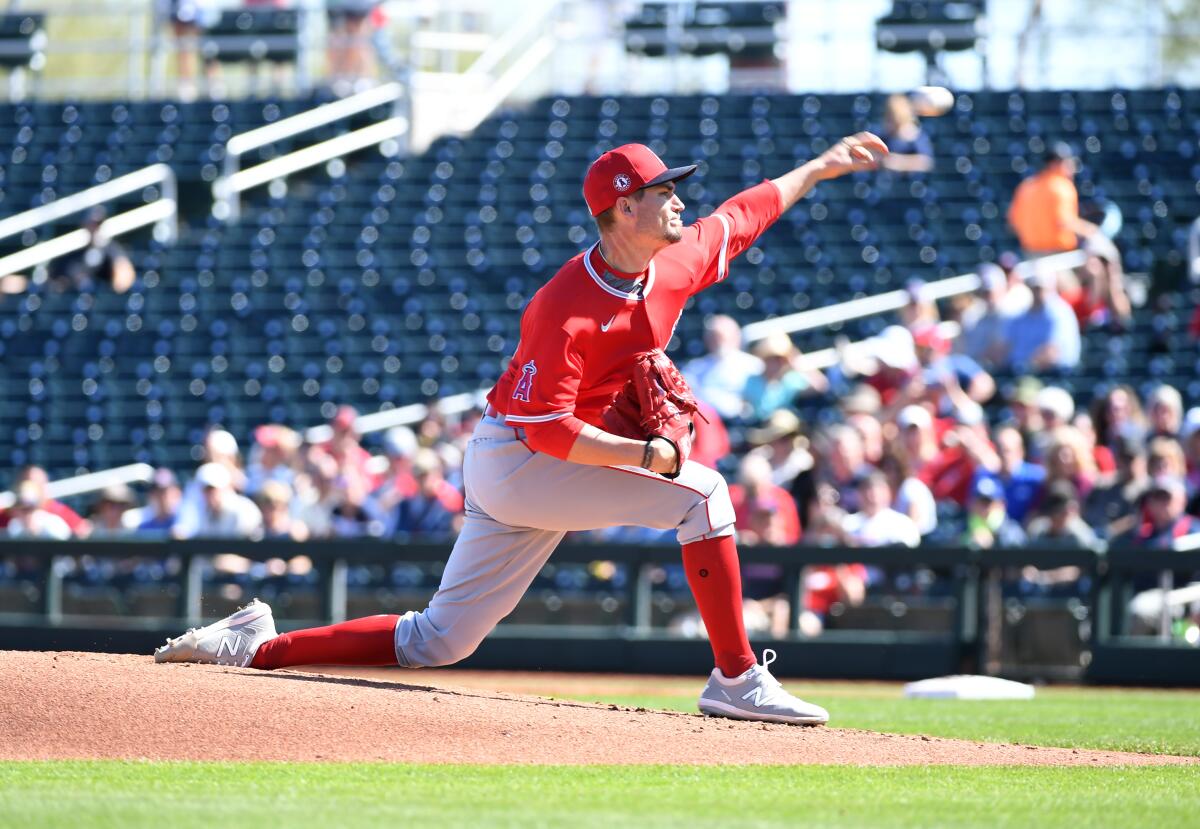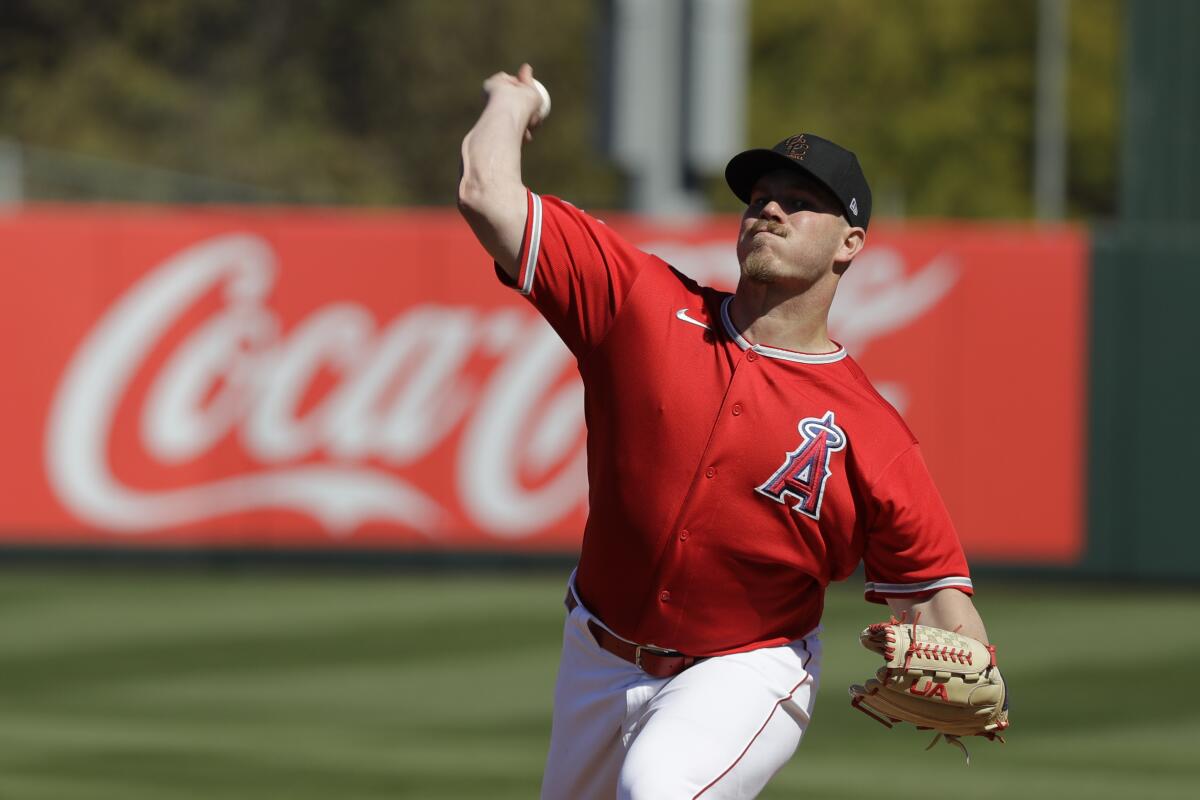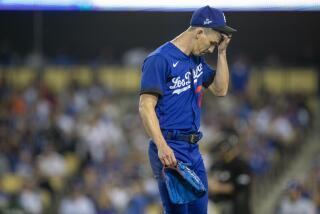Fired Angels employee Bubba Harkins sold ‘Go Go Juice’ that pitchers put on baseballs

TEMPE, Ariz. — It was common knowledge around baseball that teams visiting Angel Stadium for a series received a competitive edge in the form of a foreign substance called Go Go Juice.
The concoction, which a person familiar with the situation said was a blend of rosin and pine tar, was sold by veteran clubhouse manager Brian Harkins to pitchers looking to improve their grip of baseballs.
The operation made Harkins extra money, but it ultimately led to his dismissal by the Angels on Thursday, according to several people with knowledge of the matter who were unauthorized to comment publicly.
Harkins, nicknamed “Bubba,” had worked for the Angels for more than 30 years. He started as a batboy in 1981 and worked his way up to a leadership position in equipment management. He was respected within his profession and was voted visiting clubhouse manager of the year by MLB equipment managers in 2005. He could not be reached for comment after his dismissal.
Pitchers have long been afforded the benefit of the doubt by the league when it comes to using pine tar or combining sunscreen with rosin to enhance their grip on baseballs, so long as the efforts were concealed from view. But MLB informed teams in February that it would crack down on those substances.
Angels pitcher Andrew Heaney admitted he has “messed around” with various concoctions in order to get a better grip on the ball, and he believes the use of foreign substances by pitchers in the game is widespread.
“I think everybody knows that most guys are doing it,” Heaney said. “It’s not a huge secret. No one thinks it’s shocking that people are using sticky stuff on their fingers.”
With manager Joe Maddon and coaches Jose Molina, Matt Wise and Mickey Callaway, the Angels have four members of their 2002 World Series team on staff.
Was the Go Go Juice that Harkins sold to visiting players also made available to the Angels? The answer is unclear.
“C’mon, man,” Heaney said, chafing at the question. “I said most everybody is probably using it. Most everybody is getting something from somewhere, creating their own. Bullfrog and rosin. Whatever they want to do.”
Bullfrog is a sunscreen widely used in baseball as well as other outdoor sports.
Baseballs used in MLB are given to umpires before every game. An attendant in the umpire’s room rubs eight dozen to 12 dozen baseballs with a concoction known as New Jersey Mud, which removes the sheen from the balls and improves the grip for pitchers.
Major league rules prohibit pitchers from applying any type of foreign item or substance, including pine tar, dirt or saliva, and a failure to follow the rule results in an ejection and automatic 10-game suspension.
Cincinnati Reds pitcher Trevor Bauer recently told “Real Sports” that 70% of pitchers use some sort of substance — which can be hidden in gloves, on caps, on skin and even in hair — to enhance their grip.
The question of whether pitchers use foreign substances to improve their grip, especially in cold or dry weather and at higher altitudes, or to increase their spin rate to produce nastier breaking balls is open to debate.
“I’m sure everybody tries to do it for a different reason,” Heaney said. “To me, those balls are chalky and slick. I don’t throw that hard, but I throw pretty hard, and I like to know where it’s going. I’m sure hitters would tell you the same thing.
“When you have dudes throwing 100 mph, they want to know where it’s going, too. I would love a solution. If they’re going to crack down on it, that’s fine, if guys are using it to gain an advantage.”

One possible solution would be for MLB to develop a universal substance that pitchers could use for better grips but that wouldn’t provide a competitive advantage. New Jersey Mud is sourced from the New Jersey side of the Delaware River and doesn’t improve grip enough for many pitchers.
“They haven’t really talked to us,” Angels pitching coach Mickey Callaway said. “We’ll see what happens, but I suspect there will be no substances [allowed] at all.”
What would the game look like if pitchers weren’t allowed to use any substances to improve their grip?
“If I were a hitter, I’d be scared to dig into the box [in cold weather],” Callaway said. “The percentage of hit batters would probably go up, and probably in more dangerous areas. When guys go in right now, it’s always dangerous, but there’s going to be more accidental, purposeful pitches in.”
Angels shortstop Andrelton Simmons said he would not relish the prospect of hitting against a flame-throwing pitcher on a cold, dry night if that pitcher didn’t have a grip on where his fastball was going.
The Houston Astros cheated and Mike Fiers shined the brightest light on their scheme, LZ Granderson writes.
“I understand pitchers using something,” Simmons said. “I don’t know where the line is, whether it’s too much [substance] or not.”
New Angels pitcher Dylan Bundy said the ball being used today “is definitely slicker” than when he was drafted in 2011 and called up to the big leagues in 2012.
“You could squeeze the ball and actually see a little bit of give to it,” Bundy said. “Now you squeeze it and you’re gonna break your thumbs.”
Bundy believes pitchers who use foreign substances such as Go Go Juice are motivated by improving their control and not their stuff. Other foreign substances, such as saliva, have been used illegally for decades to create additional movement on pitches.
“I think there’s probably certain substances that can help with spin rate and others that can probably keep the hitters a little more safe than they would be on cold days,” Callaway said.
Bundy said an improved grip can help pitchers hit their spots, and embolden them to use the inside part of the plate.
“When you’re trying to throw on the inner half of the plate, you’re talking about a window of two inches of it being a home run, and four inches inside, you know, kind of getting the hitter rattled a little bit,” Bundy said. “I think some substances can help a pitcher control the ball better in that sense, so we’re not hitting guys left and right and letting the ball sail, or a two-seamer running too far inside.”

Dodgers manager Dave Roberts said MLB’s goal should be to have uniformity in how baseballs are prepared.
“Whether you’re in Arizona or Denver, the feel of the baseball ... at some point it’s a health concern as far as command when you’re throwing the ball 95-100 mph,” Roberts said.
“Balls are not [all] rubbed up exactly the same way. It’s difficult to do because every ballpark, every ball, is different. We’re trying to be mindful of that, but as far as [banning] foreign substances, we’re all on board with that.”
This spring, during meetings with teams to discuss various issues — including the enforcement of the rule barring the use of foreign substances, and a warning that intentionally hitting Houston Astros batters would not be tolerated — league executives heard reports about Harkins’ alleged involvement in supplying substances to pitchers to improve their grip.
The league alerted the Angels to those reports but did not conduct an investigation or mandate the team fire Harkins, according to a person familiar with the matter but not authorized to discuss it publicly. The Angels acted on their own to determine Harkins’ culpability, the person said.
In addition to notifying teams that it plans to enforce the rule against applying foreign substances to the ball, MLB also is exploring whether the ball used in Japan, which many pitchers say offers a better grip, could be of use in modifying the MLB balls.
“If, in fact, [foreign substances] go away, they’re going to have to alter the baseball somehow and provide a tackiness to the ball,” Angels manager Joe Maddon said. “It’s done like that I think in Japan, Taiwan, South Korea. The Asian baseball is tackier. I think the concern with their baseball is that it doesn’t have the same carry as our baseball, which I’m fine with, too.”
Times staff writer Bill Shaikin contributed to this report.
More to Read
Go beyond the scoreboard
Get the latest on L.A.'s teams in the daily Sports Report newsletter.
You may occasionally receive promotional content from the Los Angeles Times.










